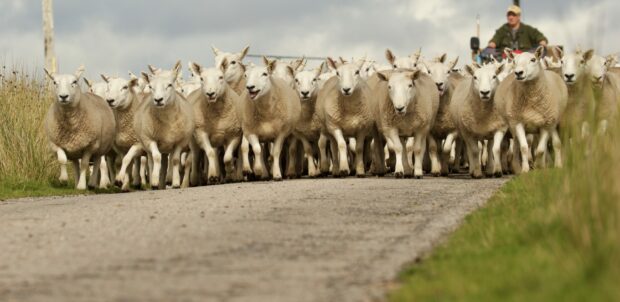The National Sheep Association’s (NSA) chief executive Phil Stocker is urging farmers to do what they can to reduce risks of disease transmission when buying in replacement stock.
With the breeding sheep sales season now in full swing across the UK, Mr Stocker said he has lost count of the number of farmers who he has spoken to that have unsuspectedly bought in diseases to their flocks when purchasing replacements.
He said awareness of some risks of bought in stock such as foot disease and anthelmintic resistance of certain parasites is well known.
Mr Stocker added that the risk of introducing diseases such as MV, OPA, and Border Disease are frequently still ignored by many.
He said: “Having experienced the serious consequences of this these farmers are urging NSA to do more to highlight the risk to others and encourage more responsible and trustworthy trade.
“This is all about reducing the risks rather than any guarantees of ‘disease free’ status. It will surely be a matter of time before more suppliers of breeding stock are providing some indication of the disease status of the stock they are selling.”
According to NSA, the sector will see more rapid progress if buyers begin to ask more questions, and then back these up with reasonable quarantine procedures when stock arrives home following purchase.
The organisation says to buy from the same trusted farms repeatedly is a good place to start.
If the seller isn’t part of a health scheme or has not done any screening, then it is advisable for the purchaser to do random blood tests when the sheep arrive home and whilst still in isolation.
Buying ewe lambs and running them on in isolation also gives breathing space to identify problems before mixing with the main flock.
Mr Stocker added that quarantining and testing both females and males is advisable.
“I realise some breeding sheep producers might find these comments challenging, but I can definitely foresee a time when it becomes the norm to give some indication of health status,” he said.
“I also realise how hard it is as a producer of breeding stock to test and receive some unwelcome results – this can be costly and damage reputations, but taking responsible action is surely better to protect reputations and business in the longer term.
“We have established health monitoring schemes such as those run by the Premium Sheep and Goat Health Scheme that can help to cover some of the costs of those farmer/vet conversations.”
